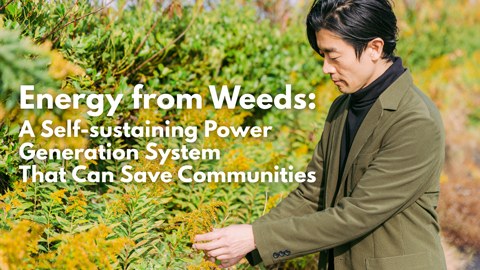As rising ocean temperatures and other factors caused by climate change seriously impact marine ecosystems, a new technology that could contribute to the conservation of marine biodiversity has emerged from Japan. By using IoT and AI to replicate natural marine environments in aquariums, the innovative system has even succeeded in facilitating coral spawning. What potential does it hold for the future?
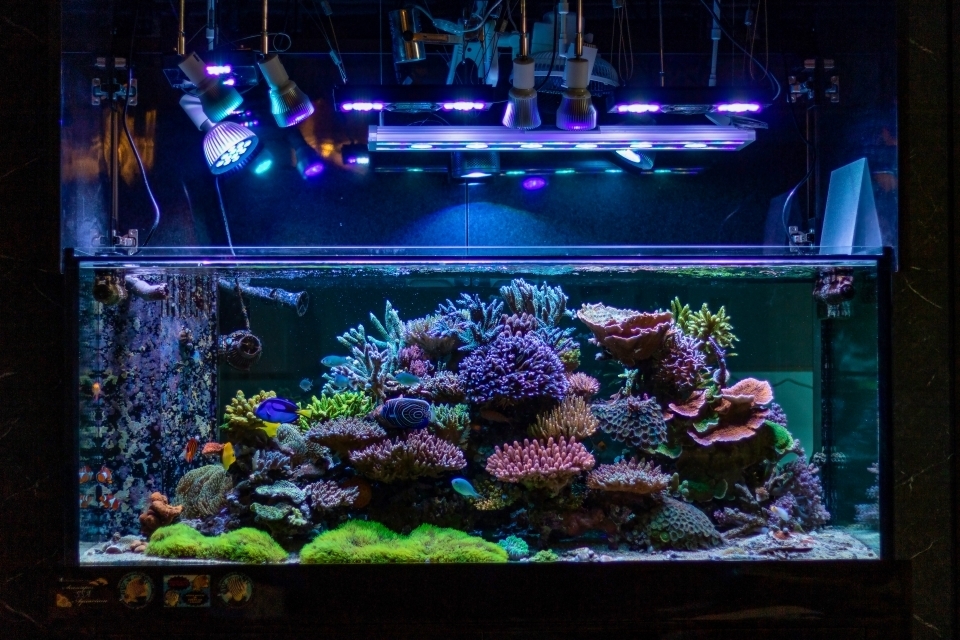
Innoqua Inc. is known for its proprietary technology in replicating coral-centered ecosystems. Lights are installed above the aquarium, automatically adjusting timing, light intensity, and even wavelength to match seasonal changes.
The office of Tokyo-based startup Innoqua Inc. is easy to spot, even from the street. Through the first-floor glass windows of its open office space, aquariums filled with colorful corals and fish catch the eyes of passersby. But these are far from ordinary display tanks—each one is a carefully balanced “miniature ecosystem,” a feat only made possible by the company’s technology and know-how.
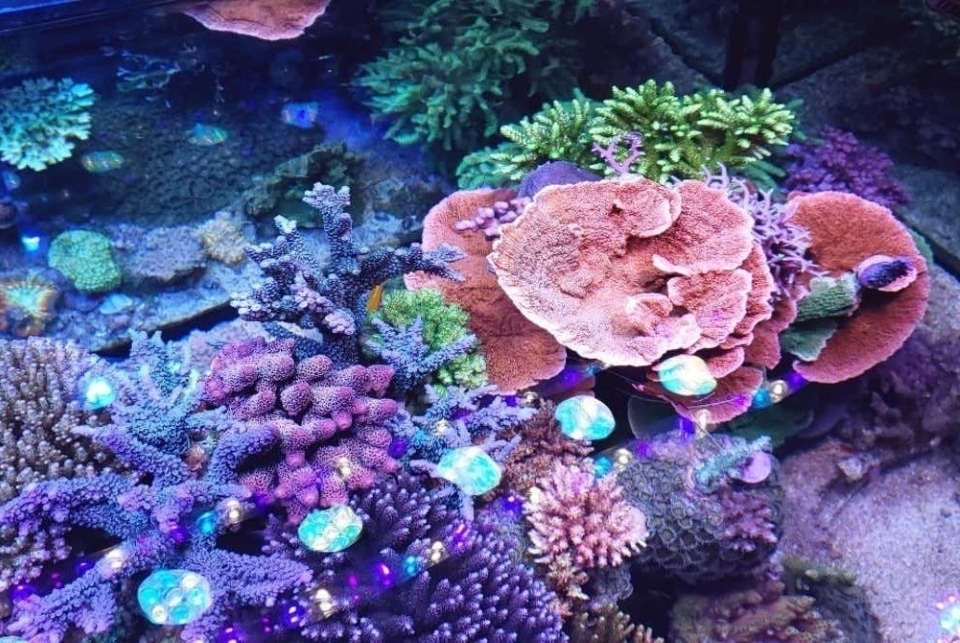
Innoqua has developed an AI-based image analysis system that assesses the coral health by examining color and condition.
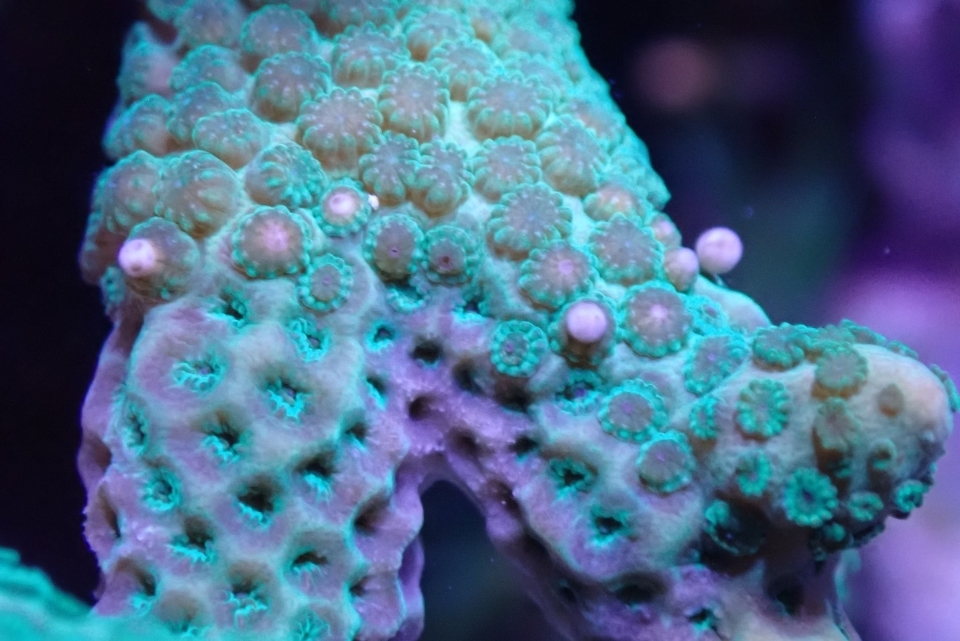
The successful 2022 spawning of Montipora digitata in an artificial seawater tank.
Innoqua’s proprietary technology uses IoT and AI to regulate various parameters such as water quality and temperature, light, and the balance of coexisting organisms, creating aquariums that precisely replicate natural marine environments. The company built its unique system by giving a central role in R&D to highly skilled aquarists who had mastered the technique of breeding aquatic organisms in aquariums, utilizing their practical knowledge and expertise to form its foundation.
Particularly impressive results have been achieved in the field of coral cultivation, led by MASUDA Naoki, the company’s CAO (“chief aquarium officer”) and a core member since its founding in 2019. In 2022, Innoqua succeeded in facilitating the spawning of Montipora digitata, or finger coral, in an artificial seawater aquarium. Corals are highly sensitive to environmental changes, making artificial cultivation extremely difficult. However, by reversing seasonal seawater conditions nearly six months in advance, the company was able to successfully shift the typical spawning season in Japan from June to February—a world-first achievement.

Innoqua has developed an AI-based image analysis system that assesses the coral health by examining color and condition.

The successful 2022 spawning of Montipora digitata in an artificial seawater tank.
This technology has significant implications for marine biodiversity conservation. Although coral reefs cover just 0.1% of Earth’s surface, they are said to provide habitats for an estimated 90,000 marine species. Yet, if climate change causes average global temperatures to rise by 1.5 degrees Celsius above pre-industrial levels, up to 90% of coral reefs could disappear. “If we can achieve year-round coral spawning in aquariums, it could become a powerful tool for both coral reef propagation and diverse conservation research,” said TAKEUCHI Shiki, the company’s COO.
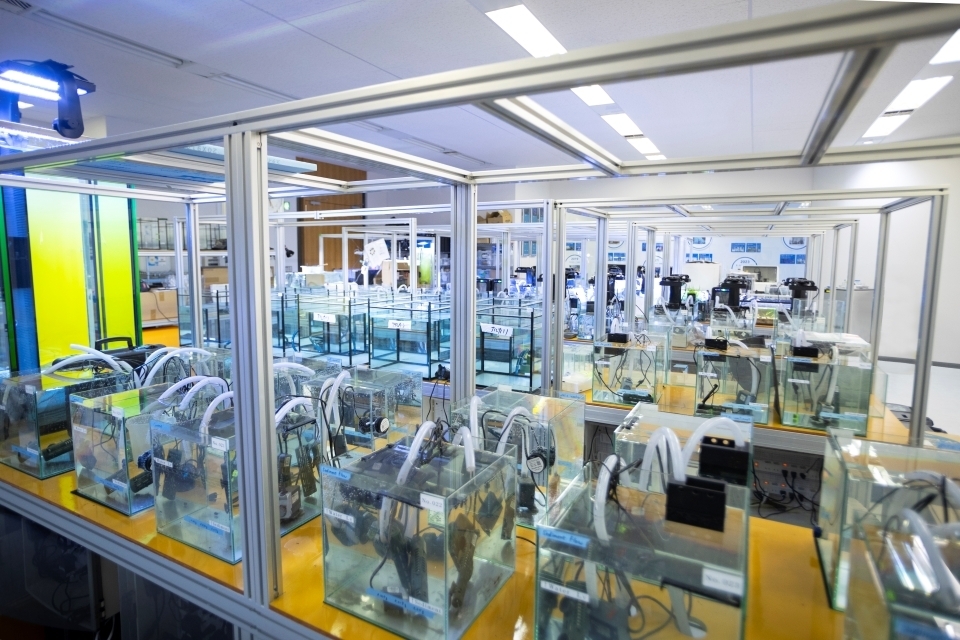
Small aquariums are lined up in one corner of the office, where various research and verification tests are conducted.
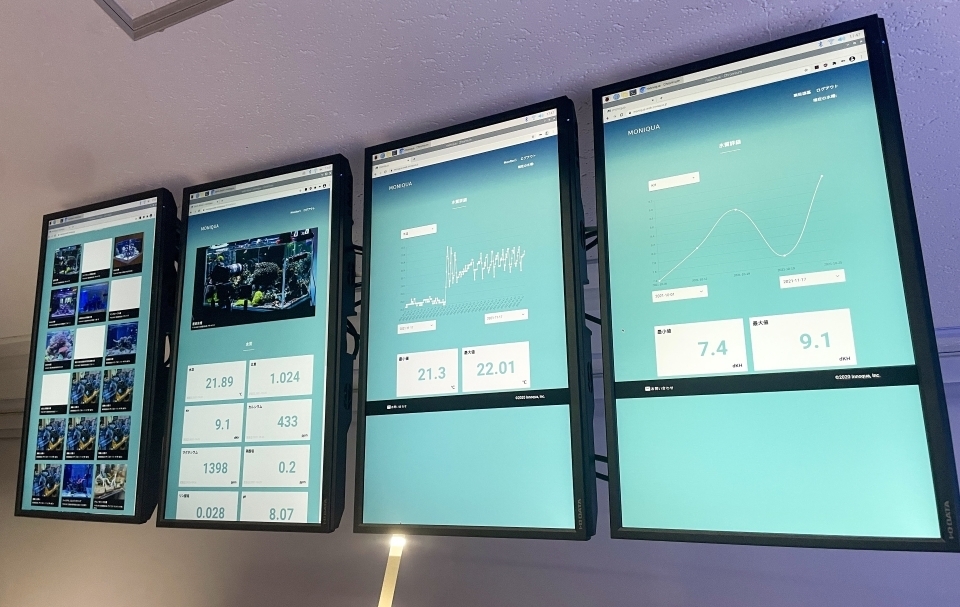
IoT devices constantly monitor data such as the quantity of substances in the artificial seawater and water temperature.
The aquariums displayed in Innoqua’s office are designed to replicate environments such as coral reefs, mangroves, and seaweed beds, all of which have faced challenges in recent years. Each tank is equipped with IoT devices that monitor nearly 30 parameters around-the-clock, adjusting for season and time of day. Meanwhile, AI image recognition technology is used to analyze the health and growth of marine organisms. Artificial seawater, with its consistent water quality, ensures stable conditions that simplify comparison and analysis. “One of our aims is to create standard marine conditions for the healthy growth of organisms. At the same time, we can tailor conditions to replicate specific regions or seasons,” commented Takeuchi.

Small aquariums are lined up in one corner of the office, where various research and verification tests are conducted.

IoT devices constantly monitor data such as the quantity of substances in the artificial seawater and water temperature.
Innoqua’s technology, capable of creating controlled environments similar to natural oceans, also holds enormous potential as an objective tool for assessing how specific substances or products affect marine ecosystems. In the actual ocean, comparisons and causal analyses are made difficult by significant variations in environmental conditions across regions, seasons, and weather patterns. This is further complicated by concurrent fluctuations in multiple variables such as water temperature and quality. With Innoqua’s technology, however, standardized conditions can be maintained, unaffected by region or season, while allowing modification of individual parameters for targeted analysis.
The company is already focusing on five biomes, including coral reefs and seaweed beds, and participating in a wide range of initiatives, from sunscreen safety assessments for marine environments to joint research projects on materials that could aid coral cultivation and regeneration. Takeuchi noted, “As the global community works to promote marine biodiversity conservation, creating a universal evaluation standard will become ever more necessary. By accumulating expertise through our efforts, we aim to eventually establish our method as an international benchmark for marine ecosystem assessments.”
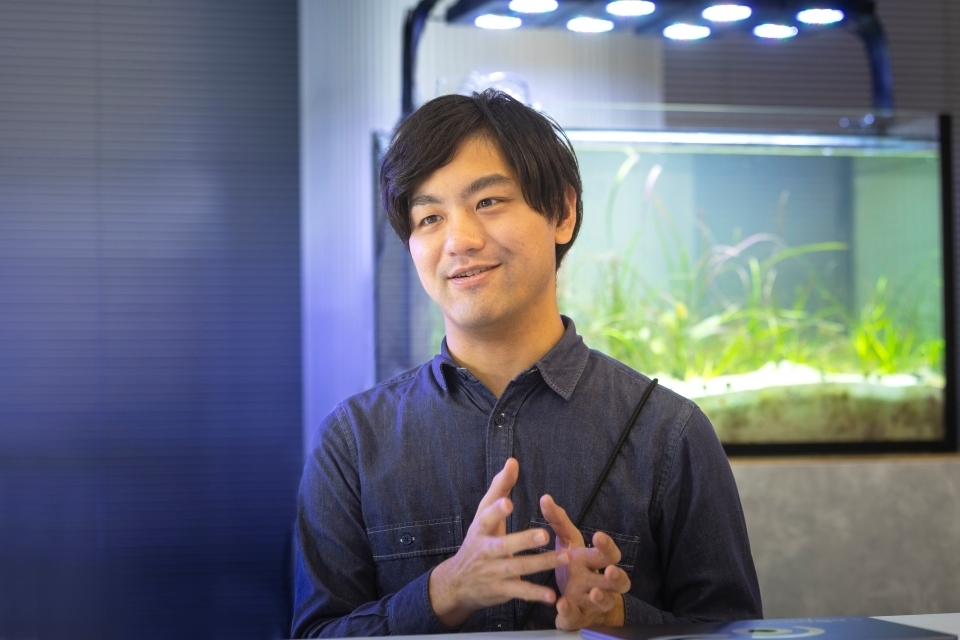
“Our goal is to create a world where people and nature live in harmony and thrive together. We would like to expand the choices available for mutually beneficial coexistence with other living organisms,” said Innoqua’s COO, TAKEUCHI Shiki.




























